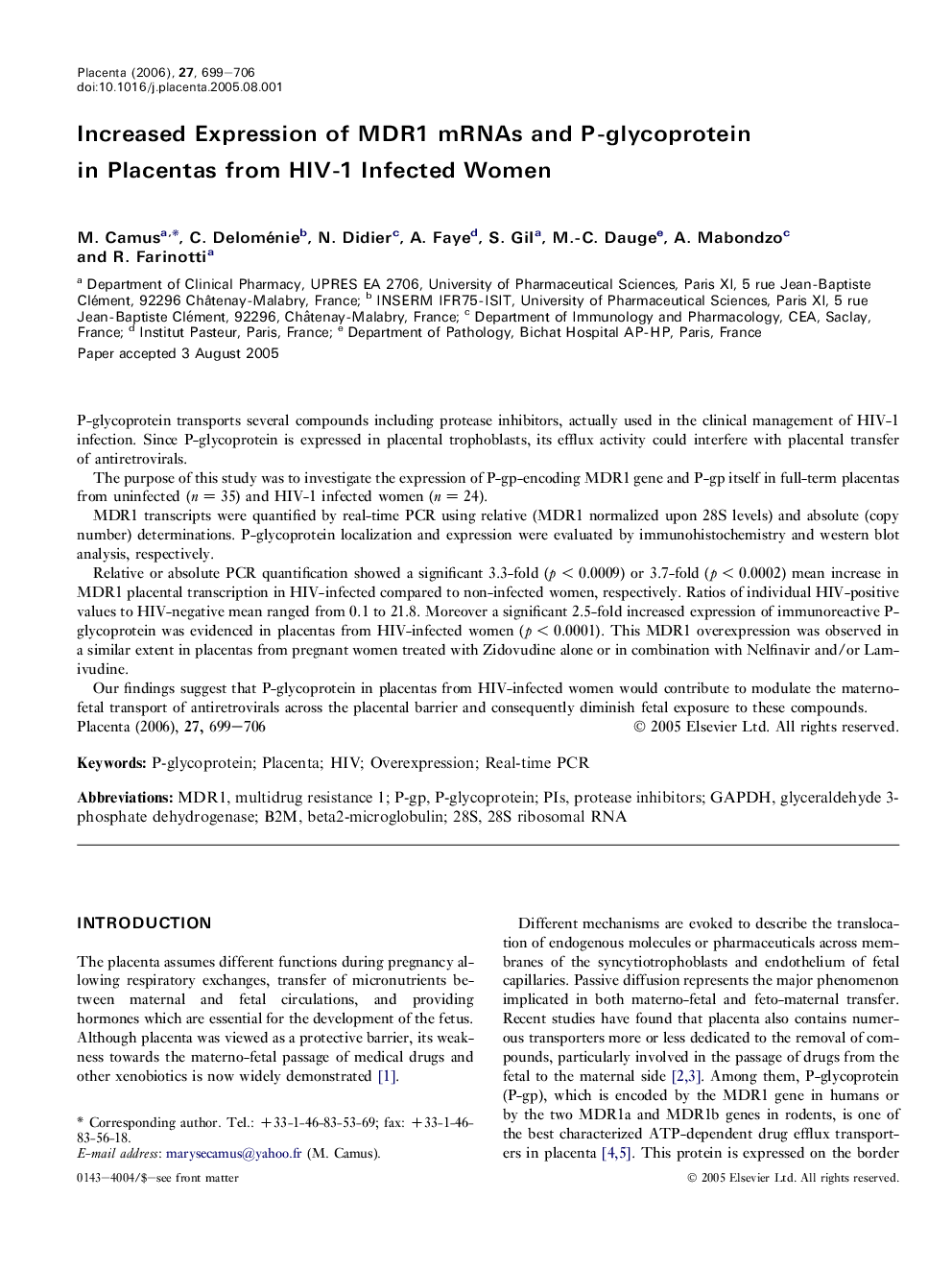| Article ID | Journal | Published Year | Pages | File Type |
|---|---|---|---|---|
| 2790267 | Placenta | 2006 | 8 Pages |
P-glycoprotein transports several compounds including protease inhibitors, actually used in the clinical management of HIV-1 infection. Since P-glycoprotein is expressed in placental trophoblasts, its efflux activity could interfere with placental transfer of antiretrovirals.The purpose of this study was to investigate the expression of P-gp-encoding MDR1 gene and P-gp itself in full-term placentas from uninfected (n = 35) and HIV-1 infected women (n = 24).MDR1 transcripts were quantified by real-time PCR using relative (MDR1 normalized upon 28S levels) and absolute (copy number) determinations. P-glycoprotein localization and expression were evaluated by immunohistochemistry and western blot analysis, respectively.Relative or absolute PCR quantification showed a significant 3.3-fold (p < 0.0009) or 3.7-fold (p < 0.0002) mean increase in MDR1 placental transcription in HIV-infected compared to non-infected women, respectively. Ratios of individual HIV-positive values to HIV-negative mean ranged from 0.1 to 21.8. Moreover a significant 2.5-fold increased expression of immunoreactive P-glycoprotein was evidenced in placentas from HIV-infected women (p < 0.0001). This MDR1 overexpression was observed in a similar extent in placentas from pregnant women treated with Zidovudine alone or in combination with Nelfinavir and/or Lamivudine.Our findings suggest that P-glycoprotein in placentas from HIV-infected women would contribute to modulate the materno-fetal transport of antiretrovirals across the placental barrier and consequently diminish fetal exposure to these compounds.
